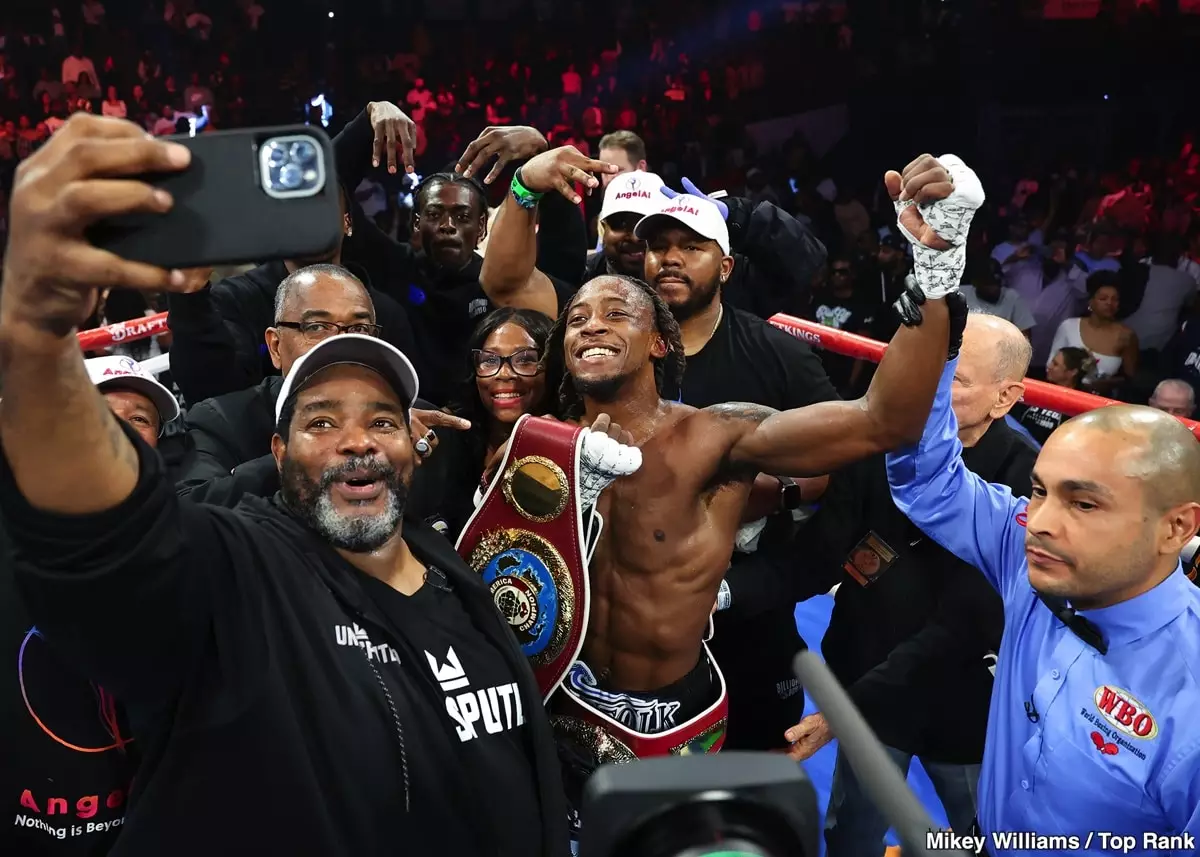The world of boxing is no stranger to hype and bravado. A prime example of this dynamic is the upcoming match between WBO lightweight champion Denys Berinchyk and top contender Keyshawn Davis. Scheduled for February 14th at Madison Square Garden’s Hula Theater, this bout is garnering significant attention, particularly as it marks a critical step for Davis, who is aggressively positioning himself as a future star in the 135-pound division.
With an impressive record of 19 wins and no losses, Denys Berinchyk is no easy opponent, even if he is considered a “weaker” champion in the current landscape of lightweight boxing. At 36 years old, he may not be in his prime, but his experience and skill can’t be underestimated. Meanwhile, Davis, with a record of 12-0, is looking to solidify his place in the sport; however, his path has not been as tested as he suggests.
Reports indicate that both fighters belong to Top Rank, a promotional advantage that could lead to a seamless match-up. This development represents more than just another title fight—it’s also a significant branding opportunity for Davis, a 2020 Olympic silver medalist, who is being marketed as the next big thing in boxing. Yet, questions arise about the legitimacy of this promotion, particularly when considering the caliber of opponents that Davis has faced thus far.
In the age of social media, self-promotion has become as pivotal as fighting skill. Keyshawn Davis, who refers to himself as “The Businessman,” exemplifies this trend. He engages audiences with brash statements and ambitious aspirations, boldly declaring that he cannot be challenged in the 135-lb division. He touts his physicality and skills, suggesting that no fighter would be able to go the distance with him, despite evidence to the contrary from past bouts, including decisions against less formidable opponents.
Critics question whether Davis is engaging in mere fantasy or if he genuinely believes his proclamations. While confidence is vital in sports, overconfidence can often lead to unrealistic expectations and premature challenges against established fighters like Gervonta Davis and Vasiliy Lomachenko. Davis has proposed future bouts with these top-tier names, but the reality is that for him to claim shot at their titles, he must first prove himself against more relevant opponents, like Andy Cruz and Raymond Muratalla.
The crux of the matter lies in Davis’s relative inexperience. Many of his fights have been against opponents who, in the grand scheme of boxing, are seen as stepping stones rather than formidable challenges. This trend of cherry-picking opponents to build a record may backfire. Though this tactic can neatly fill the win column, it raises doubts about whether he possesses the readiness to compete at an elite level against the division’s best.
Davis himself made a commendable observation about Berinchyk’s strengths, specifically highlighting the champion’s footwork and strategic IQ. This acknowledgment indicates that Davis understands the intricacies of boxing; however, it’s his refusal to engage more challenging rivals that ultimately questions his readiness. The fight against Berinchyk will serve as a critical litmus test for his claims, and the outcome may either bolster or shatter his hype.
The upcoming fight between Keyshawn Davis and Denys Berinchyk is emblematic of a greater narrative in boxing—a contest about physical prowess and a battle of perception. While Davis markets himself as the next big thing, the legitimacy of his claims rides on performances like the one against Berinchyk.
As the boxing world eagerly awaits this bout, fans must grapple with the contrast of Davis’s compelling self-promotion against the backdrop of his actual combat experience. Will he rise to the occasion, backing up his ambitious statements, or will he falter against a tough and seasoned opponent? Only time will tell, but one thing is for certain: the stakes are high for both fighters, and the boxing landscape will be watching closely.

